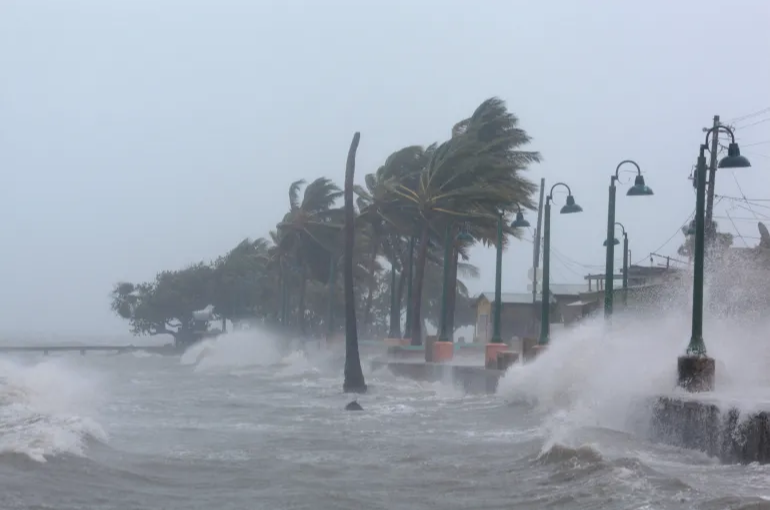
Waves crash against a seawall as Hurricane Irma slammed across islands in the northern Caribbean in 2017, in Fajardo, Puerto Rico [File: Alvin Baez/Reuters]
United Nations, May 29 (RHC)-- Tens of millions of people living in coastal areas of the Caribbean and Latin America face “life-threatening” weather events made worse by the climate crisis, the United Nations said in a new report.
The UN Population Fund (UNFPA) report on Tuesday found that 41 million people – about 6 percent of the population across the region – are exposed to threatening storms and flooding. Nearly 1,450 hospitals vital to maternal health and family planning across the region also are located in low-elevation coastal areas that are more prone to natural hazards, the UNFPA said.
More than 80 percent of the hospitals in Aruba and Cayman Islands, Suriname, Bahamas and Guyana are in such areas, the report found. “Climate change impacts women and girls the hardest and exacerbates existing inequalities,” Dr Natalia Kanem, the UNFPA’s executive director, said in a statement.
“Millions of poor and vulnerable women and girls, who are the least responsible for the climate crisis, pay a heavy price when climate-related disasters strike and disrupt essential health and protection services as well as livelihoods.” The agency said more than 80 percent of the hospitals in Aruba and Cayman Islands, Suriname, Bahamas and Guyana are in low-lying coastal areas prone to dangerous storms.
In Ecuador, nearly 12 percent of the country’s healthcare facilities were in these areas, Tuesday’s report found, compared with 10 percent of Haiti’s hospitals and 7 percent of those in Brazil.
The findings come as regional leaders are meeting this week in Antigua and Barbuda for a Small Island Developing States summit to discuss the climate crisis, among other issues.
Small island states across the Pacific, Atlantic and Caribbean, with negligible emissions, are particularly vulnerable to economic crises and rising temperatures due to their exposure to natural disasters, high debt and reliance on imports and tourism.
“It is not sufficient for nations to simply make empty and grossly inadequate commitments under the Paris Agreement,” Antigua and Barbuda Prime Minister Gaston Browne, the conference president, said on Monday.
Under the 2015 Paris Agreement, countries agreed to limit emissions and prevent temperatures rising more than 1.5 degrees Celsius (2.7 degree Fahrenheit) above pre-industrial levels.
Browne also urged rich nations to honour a pledge to send $100 billion a year to poorer countries to help reduce emissions and mitigate extreme weather. Experts have said the climate crisis is fuelling more devastating storms across the world, including drought, wildfires, flooding and hurricanes.
Last week, forecasters with the National Oceanic and Atmospheric Administration’s National Weather Service in the United States predicted that the Atlantic basin would see “above-normal hurricane activity” this year.
Several factors are driving the risk of more hurricanes in 2024, the agency said, including “near-record warm ocean temperatures in the Atlantic Ocean, development of La Nina conditions in the Pacific, [and] reduced Atlantic trade winds and less wind shear”.
The Atlantic hurricane season typically begins in June and runs until the end of November.

